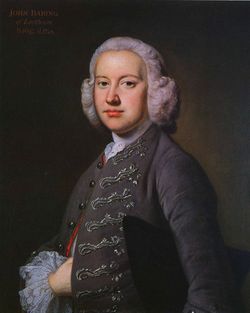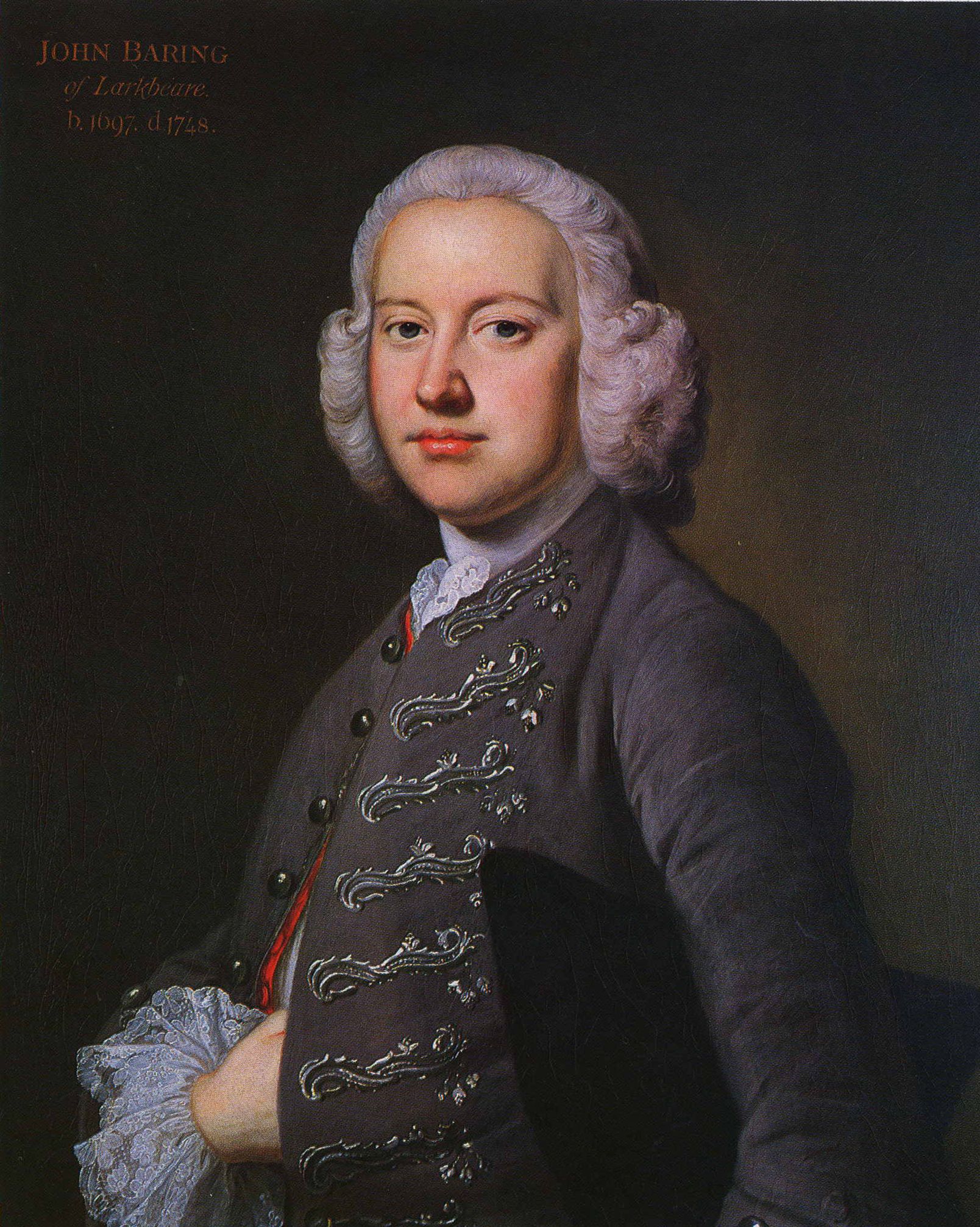At the age of twenty, Johann was sent to England to learn the wool trade in Exeter, Devon. Originally he had planned to return to Bremen after his apprenticeship, but he decided to stay in England and naturalized in 1723. At this time, he Anglicised his first name from Johann to John.
John married Elizabeth Vowler on 15 Feb 1729. She was the daughter of a prosperous Exeter grocer and brought with her a large dowry of £20,000 and an acute business sense.
John purchased Larbear House in Exeter in 1737. His fortune was established when he founded a woollen serge manufactory on the land beside the house.
("Report and Transactions - The Devonshire Assoication" Vol. 5, page 100):
The following particulars of the Barings are gathered from Dr. Oliver's Exonian Biographies: ---
The Rev. Dr. Francis Baring, son of John and Ann Baring, was born in Bremen, 21 January, 1656. Appointed Lutheran Pastor of St. Anascharius' Church, bremen, and died in that office 3rd November, 1697. By his wife Rebecca (Voight) he left two daughters and a posthumous son (John), born ten days after his father's death. John was slenderly provided for, but received a mercantile education, and at the age of twenty came to Exon to learn the Serge manufacture, under Edmund Cock, merchant. Was naturalized in 1723, with a proviso that he should hold no office unter the crown, nor hold lands, &c. In 1729 he married Elizabeth, daughter of John Vowler, an opulent grocer, who had retired to Bellair, on the Topsham Road. Her fortune and talents assisted him in extending his mercantile transactions, and in a few years he acquired considerable property. Purchased Larkbeare House of the Lavintons (1737), the Rectory of St. Leonards for 90 pounds, Spur Barn, and other estates. Died 1748. Buried at St. Leonards.
At the age of twenty, Johann was sent to England to learn the wool trade in Exeter, Devon. Originally he had planned to return to Bremen after his apprenticeship, but he decided to stay in England and naturalized in 1723. At this time, he Anglicised his first name from Johann to John.
John married Elizabeth Vowler on 15 Feb 1729. She was the daughter of a prosperous Exeter grocer and brought with her a large dowry of £20,000 and an acute business sense.
John purchased Larbear House in Exeter in 1737. His fortune was established when he founded a woollen serge manufactory on the land beside the house.
("Report and Transactions - The Devonshire Assoication" Vol. 5, page 100):
The following particulars of the Barings are gathered from Dr. Oliver's Exonian Biographies: ---
The Rev. Dr. Francis Baring, son of John and Ann Baring, was born in Bremen, 21 January, 1656. Appointed Lutheran Pastor of St. Anascharius' Church, bremen, and died in that office 3rd November, 1697. By his wife Rebecca (Voight) he left two daughters and a posthumous son (John), born ten days after his father's death. John was slenderly provided for, but received a mercantile education, and at the age of twenty came to Exon to learn the Serge manufacture, under Edmund Cock, merchant. Was naturalized in 1723, with a proviso that he should hold no office unter the crown, nor hold lands, &c. In 1729 he married Elizabeth, daughter of John Vowler, an opulent grocer, who had retired to Bellair, on the Topsham Road. Her fortune and talents assisted him in extending his mercantile transactions, and in a few years he acquired considerable property. Purchased Larkbeare House of the Lavintons (1737), the Rectory of St. Leonards for 90 pounds, Spur Barn, and other estates. Died 1748. Buried at St. Leonards.
Family Members
Advertisement
Advertisement



